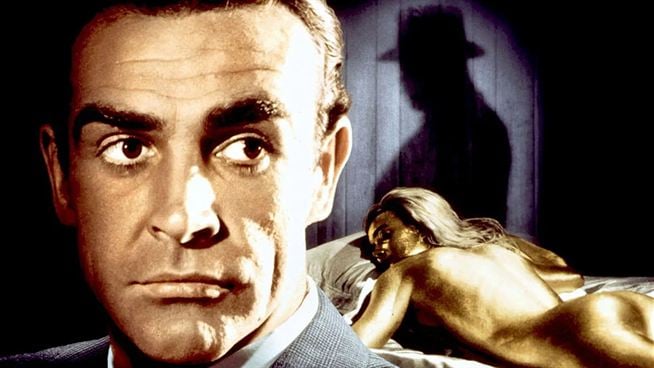
Two of the most memorable opponents James Bond has ever had to fight. A film with many versions: the not exactly prudish satirical crime musical “The Threepenny Opera” was shown uncut in German cinemas with an FSK rating for children aged 16 and over.
Nevertheless, the villain story with “The Spy Who Loved Me” villain Curd Jürgens and “Goldfinger” villain Gert Fröbe offers several alternative versions thanks to its crazy publication history. On February 1, 2024, ‘The Threepenny Opera’ will be released on Blu-ray for the first time – uncut, lavishly restored and with lots of bonus material!
“The Threepenny Opera” on Amazon*
The extras include a booklet about the hectic history of the Bertolt Brecht adaptation and its international exploitation. Interviews, unused audio recordings and music playbacks are also included. The American version, which is about 40 minutes (!) shorter, is also available on a bonus DVD.
It has German audio and two English audio tracks and is only available as a worn copy with burned-in Swedish subtitles. A curiosity that shows that even large-scale productions are not safe from being forgotten. After all: Brecht would certainly have liked this (unintentional) distancing effect! And the German version is anyway the most important version in brilliant quality…
“The Threepenny Opera”: And Stromberg, he’s got teeth…
Notorious London villain Mackie Messer (Curd Jürgens) has a crush on Polly Peachum (June Ritchie), which displeases her father. But no matter how much ‘Beggar King’ Jonathan Jeremiah Peachum (Gert Fröbe) protests, the wedding is coming, which also bravely celebrates Mackie’s old friend – Police Chief Brown (Lino Ventura).
It is Polly’s mother Cella (Hilde Hildebrand) who poses a threat to the marriage between Mackie and Polly: she knows that Mackie constantly goes to the brothel, where he is especially fond of dive bar Jenny (Hildegard Knef). Cella bribes the popular prostitute to report her regular customer to the police. So Mackie’s activities seem to be over – unless he has another ace up his sleeve…
Seeing Jürgens in a beautifully staged musical may surprise a modern audience who mainly knows him as the future world ruler Stromberg from “The Spy Who Loved Me” and thanks to the cynical cult comedy “Mörder GmbH”. The public at the time was probably less surprised:
Jürgens also worked as a pop singer and released records in English and German from 1959 – so he was singing long before he made life difficult for 007. Few film fans, on the other hand, could have ever imagined Fröbe starring in a musical (even though he released a record with two comedic songs in 1980).
Even before his appearance in “Goldfinger” and the 1962 Brecht adaptation, Fröbe was a popular choice for stories of broken morals. Fröbe left German and international audiences with uncomfortable goosebumps with the serial killer drama ‘It Happened in Broad Daylight’.
Sometimes more Brecht, sometimes less Brecht
Despite the impressive cast then and now: director Wolfgang Staudte faced a lot of criticism at the time. Kurt Weill’s original arrangements are already bigger and more enjoyable thanks to a prominent string section were interpreted were met with resistance. In general, the press regarded the film as far removed from Brecht’s style, which is characterized by breaking through illusions and emphatically challenging thinking.
But even though it seems difficult to imagine that Brecht would have taken the initiative for a similar film adaptation of the material, in his ‘Threepenny Opera’ Staudte creates a lush film world that at the same time appears consciously stage-like. This element of the artificial, executed with a passion for craftsmanship, still gives a touch of the Brecht factor – and is decades later a true feast for the eyes for anyone who misses massive stage constructions in striking colors.
If you want to compare how differently you can approach Brecht, consider yourself lucky: the original was based on catchy tunes like “The Morality of Mackie Messer” (covered by Michael Bublé, Louis Armstrong, Bobby Darin, Frank Sinatra and Robbie Williams, among others). ) edited many times. Including ‘Mackie Messer – Brecht’s Threepenny Film’.
The ‘Threepenny Opera’ is filmed in it, but also Brecht’s own attempt to bring his stage success to the cinema. The Meta Movie is currently included in the Prime Video subscription:
“Mackie Messer” on Amazon Prime Video*
Ultimately, nothing came of Brecht’s experiments, but the material was published as early as 1931 “The 3-Penny Opera”* filmed. Responsible was the influential director GW Pabst, who accused Brecht of toning down the satirical element too much. However, Japanese master director Akira Kurosawa later named Pabst’s version one of his 100 favorite films.
In brief: Although these films cover the same core, they are so varied that a ‘three cents opera-movies-movie night’ is easily possible. And if you fancy even more morality after Brecht’s gluttony, the following, also unusual musical, offers itself as a colorful, bitter dessert:
Author: Sidney Schering
Source : Film Starts
I am Dawid Malan, a news reporter for 24 Instant News. I specialize in celebrity and entertainment news, writing stories that capture the attention of readers from all walks of life. My work has been featured in some of the world’s leading publications and I am passionate about delivering quality content to my readers.







